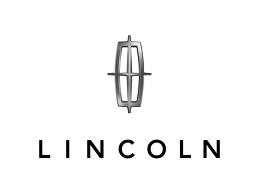Mark LT 2WD V8-5.4L VIN 5 (2007)

Disc Brake System - Exploded View
Removal
WARNING: Use of any other than approved DOT 3 motor vehicle brake fluid will cause permanent damage to brake components and will
render the brakes inoperative. Failure to follow these instructions may result in personal injury.
WARNING: Carefully read cautionary information on product label. For EMERGENCY MEDICAL INFORMATION seek medical advice.
In the USA or Canada on Ford/Motorcraft products call: 1-800-959-3673. For additional information, consult the product Material Safety
Data Sheet (MSDS) if available. Failure to follow these instructions may result in personal injury.
CAUTION: Brake fluid is harmful to painted and plastic surfaces. If brake fluid is spilled onto a painted or plastic surface, immediately wash it with
water.
1. Check the brake fluid level in the brake master cylinder reservoir.
^
If required, remove fluid until the brake master cylinder reservoir is half full.
2. With the vehicle in NEUTRAL, position it on a hoist.
3. CAUTION: Do not allow the brake caliper to hang from the brake hose or damage to the hose can result.
Remove the 2 brake caliper guide pin bolts and position the brake caliper aside.
^
Support the caliper using mechanic's wire.
4. Measure the brake disc thickness and install a new brake disc if it is not within specification.
5. Remove the brake pads and the 2 spring clips.
^
Discard the spring clips.
6. CAUTION: Install a new pad if it is worn past the specified thickness above the metal backing plate or rivets. Install new pads in complete axle
sets.
Inspect the pads for wear and contamination.
7. Inspect the brake caliper anchor plate assembly.
^
Check the guide pin boots for damage.
^
Check the guide pins for binding and damage.
^
Replace worn or damaged boots. Lubricate the guide pins.
Installation
1. CAUTION: Protect the piston and boot when pushing the piston into the caliper bore.
Using a suitable tool and a worn brake pad, compress the caliper piston into the caliper.
2. CAUTION: Do not allow grease, oil, brake fluid or other contaminants to contact the pad lining material. Do not install contaminated pads.
NOTE: Install all new hardware supplied with the pad kit and spring kit.
Install the 2 new spring clips and brake pads.
3. Position the brake caliper and install the 2 guide pin bolts.
^
Tighten to 30 Nm (22 ft. lbs.).
4. Test the brakes for normal operation.
